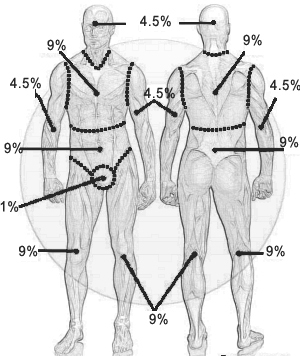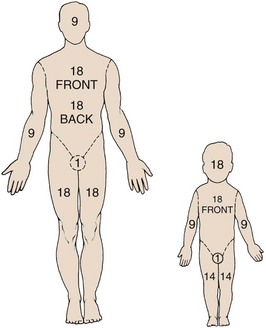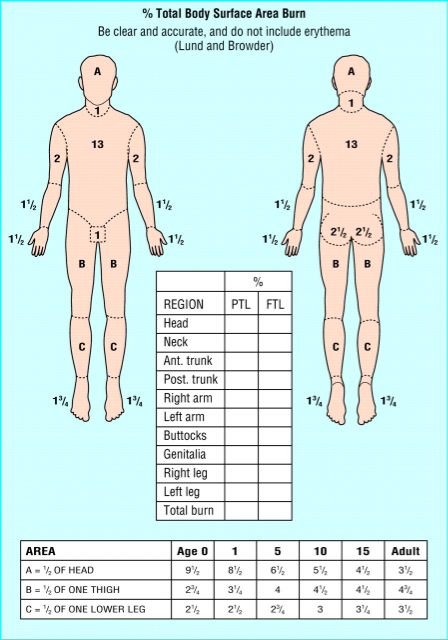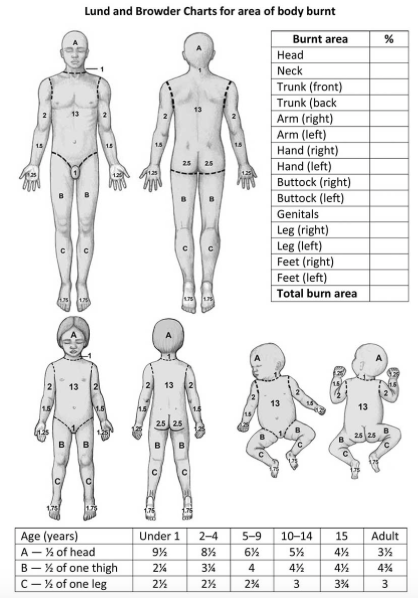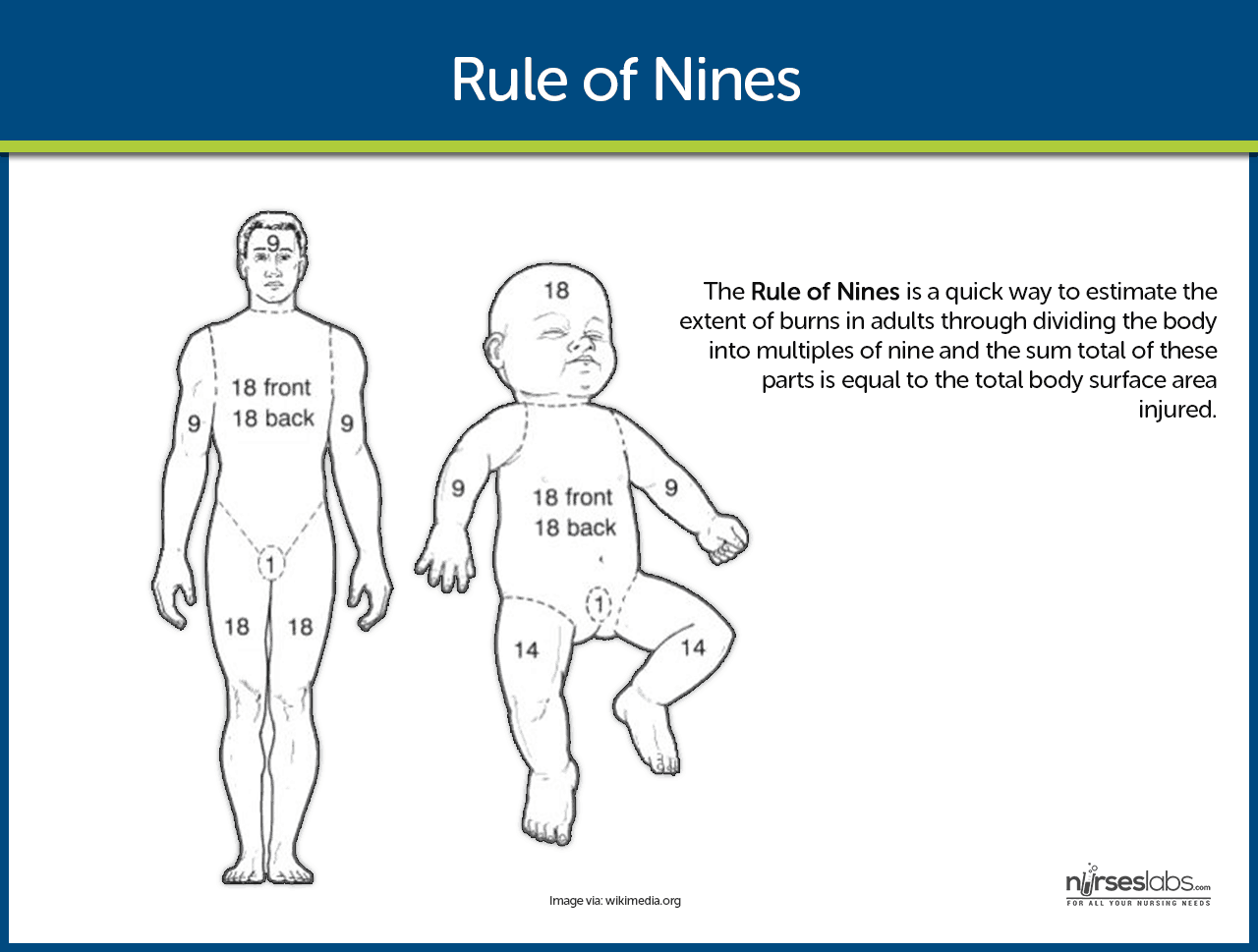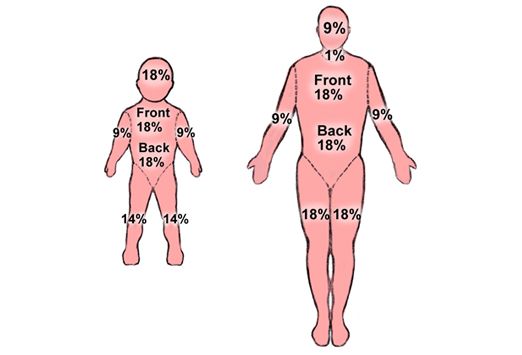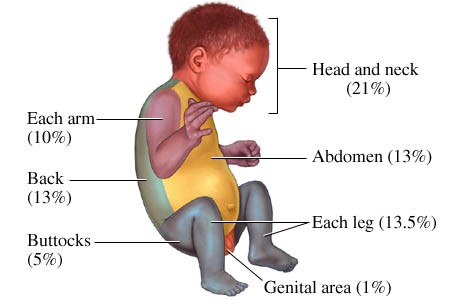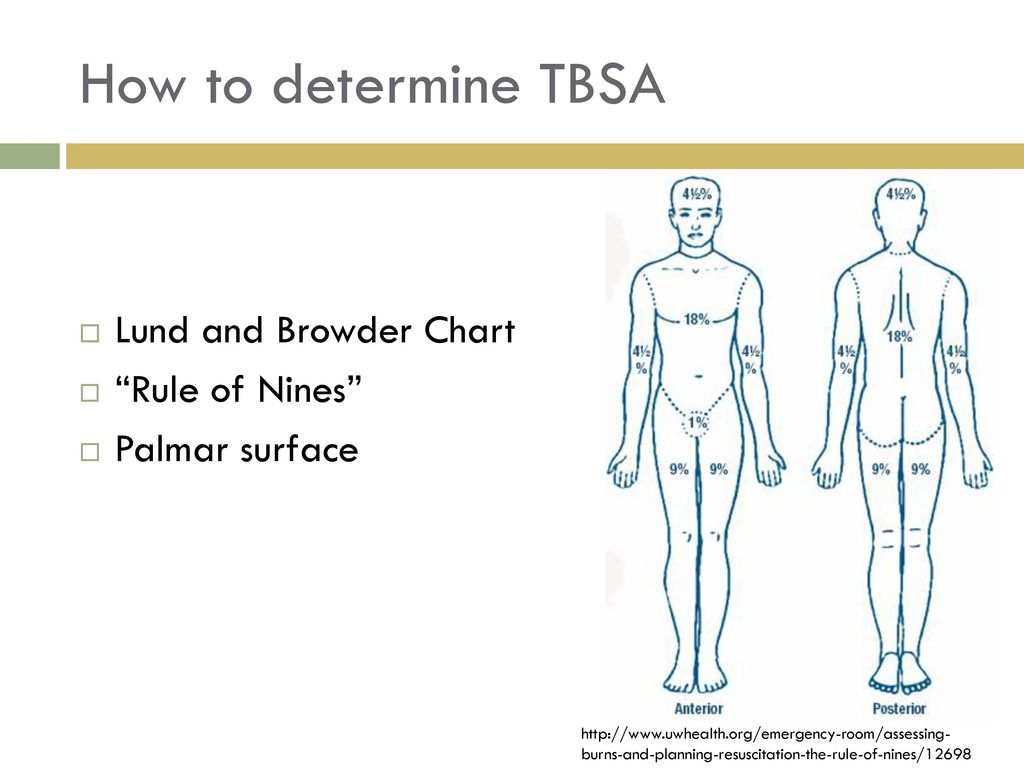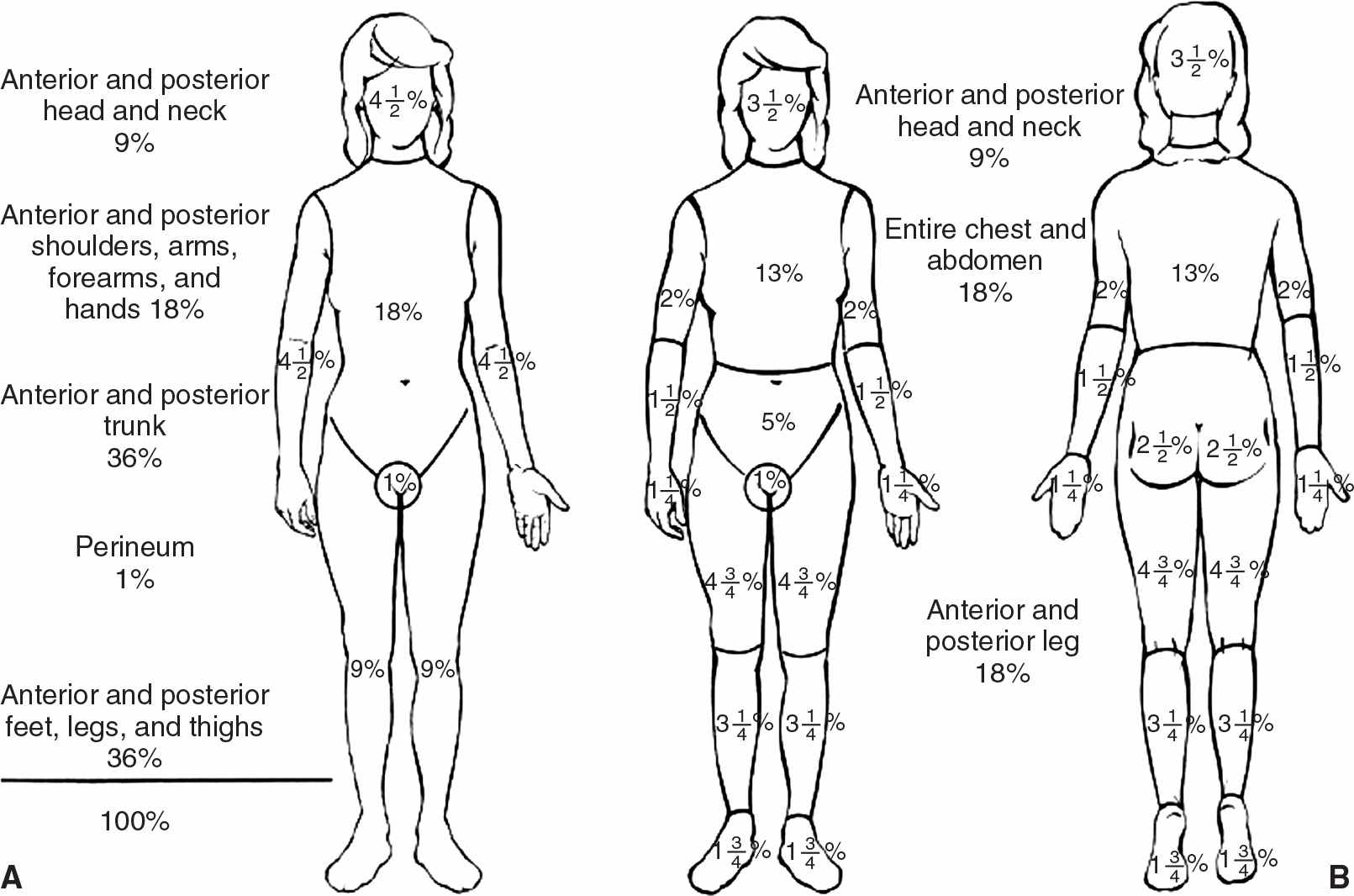Burn Chart Rule Of Nines

Going through burned tissue is acceptable.
Burn chart rule of nines. This rule is only applied to partial thickness 2 nd degree and full thickness 3 rd degree burns. The first step in assessing a burn and planning resuscitation involves a careful examination of all body surfaces. Second degree burns also known as partial thickness burns third degree burns known as full thickness burns.
The rule of nines assesses the percentage of burn and is used to help guide treatment decisions including fluid resuscitation and becomes part of the guidelines to determine transfer to a burn unit. 9 complete left arm. You can estimate the body surface area on an adult that has been burned by using multiples of 9.
Use lr based on consensus formula 2 ml x weight in kg x tbsa 24 hour fluid total. Obtain iv access for burns 15 tbsa preferably in upper extremities. The wallace rule of nines is useful in approximating the percentage of a patient that is burned.
Two large bore ivs 40 tbsa. The diagram below depicts bsa percentages for adults and infants of one year or less. Rule of nines diagram.
If this is not available the rule of nines is fairly accurate in adult patients. The rule of nines is a standardized method used to quickly assess how much body surface area bsa has been burned on a patient. An adult who has been burned the percent of the body involved can be calculated as follows.
The rule of nines is meant to be used for. A standard lund browder chart is readily available in most emergency departments for a quick assessment of total body surface area burns.


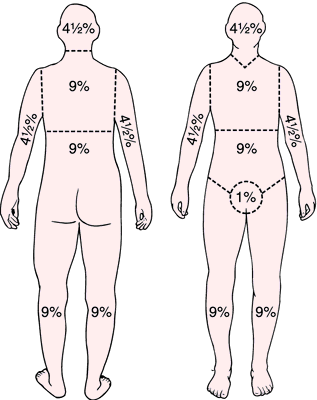
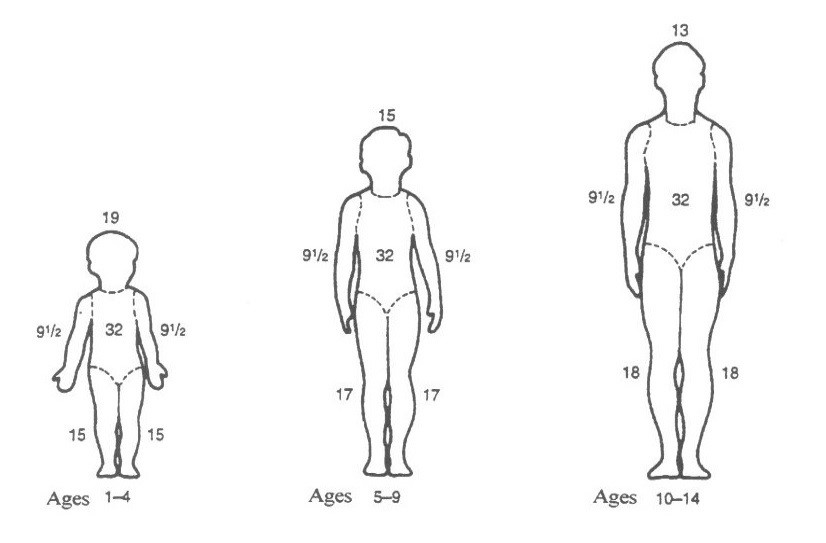


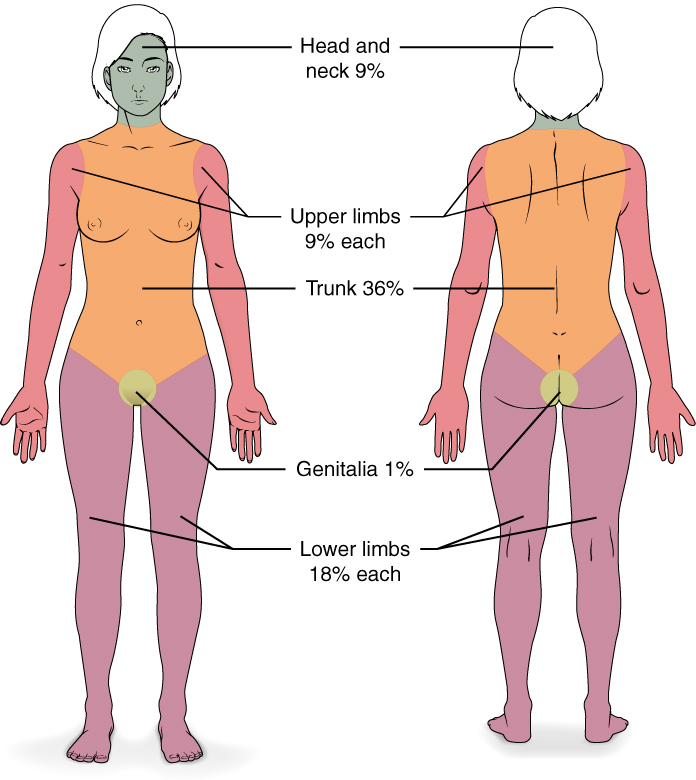
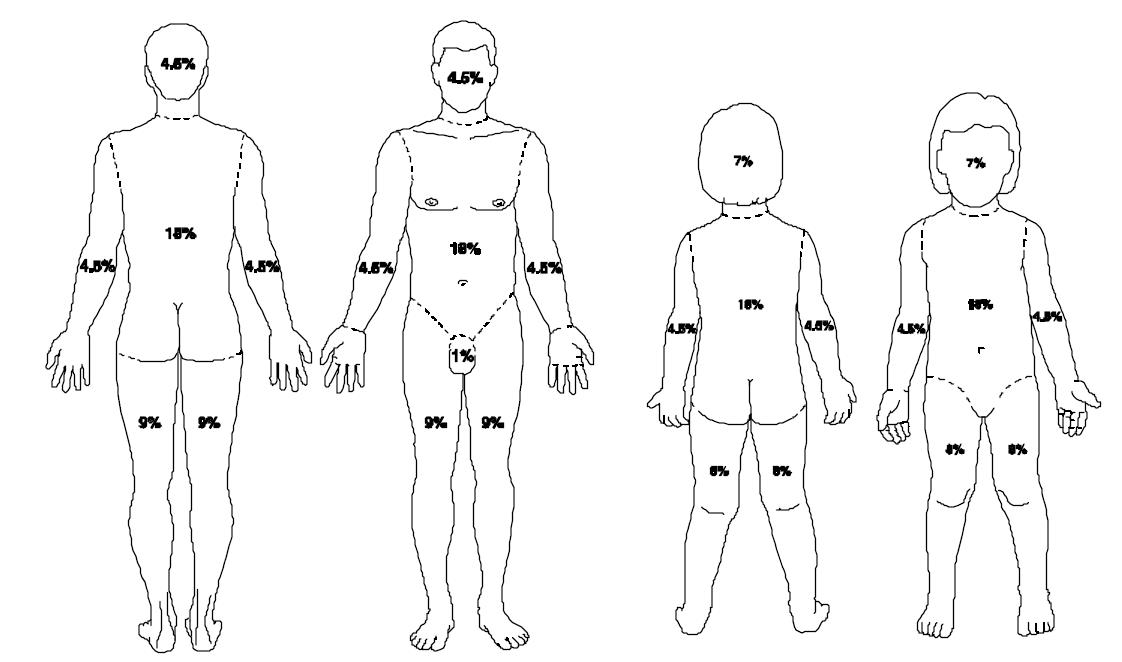



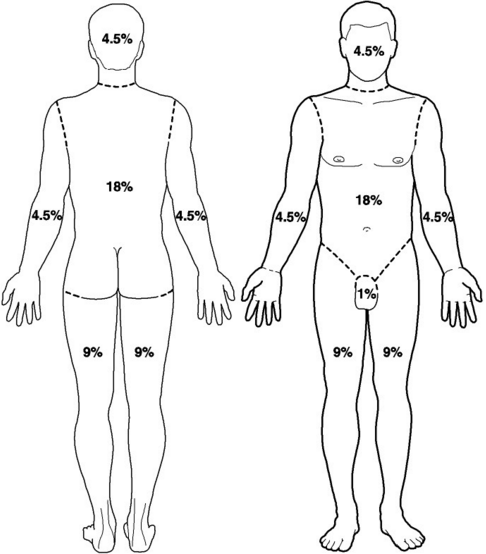
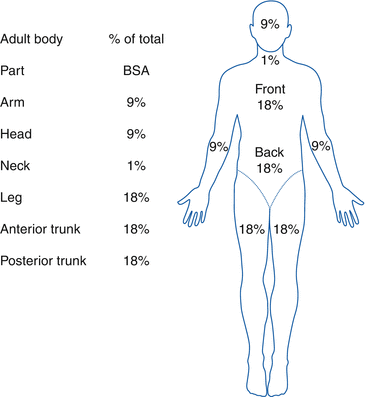
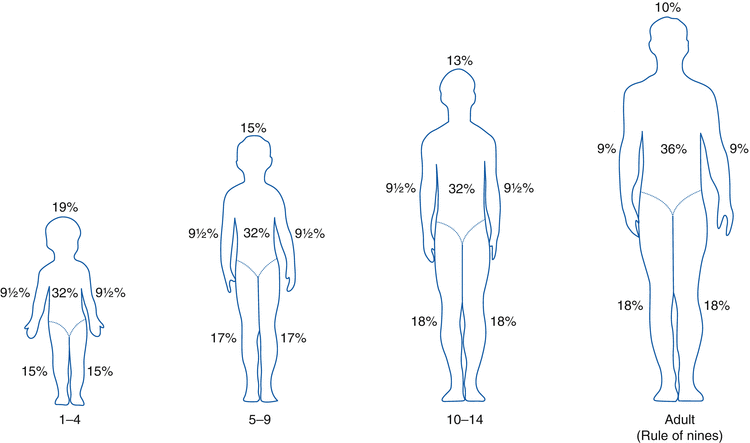
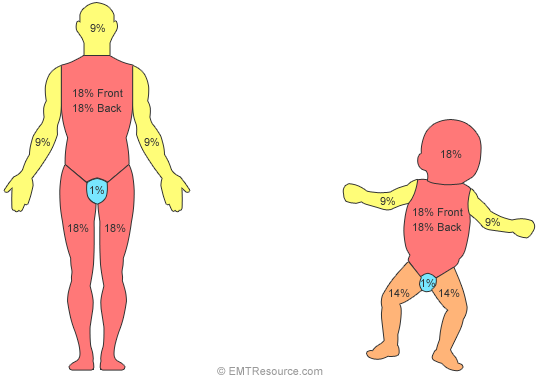
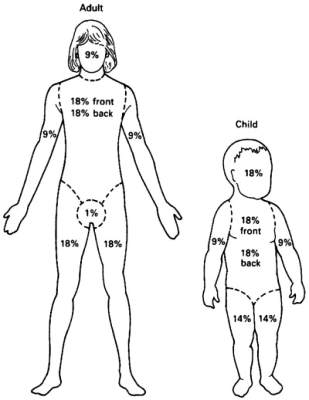






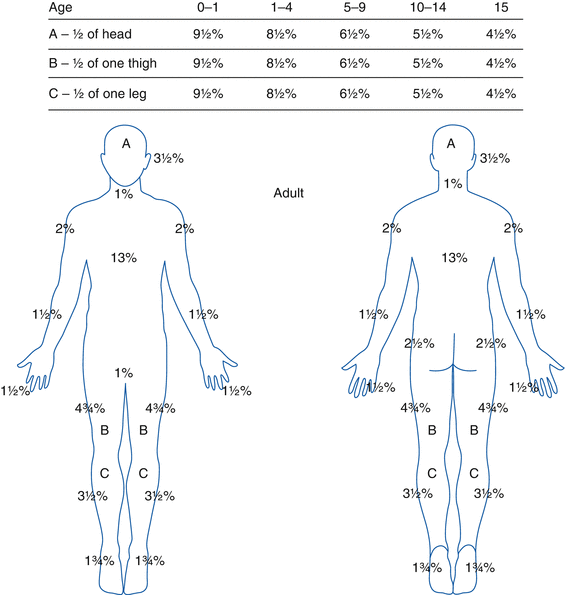
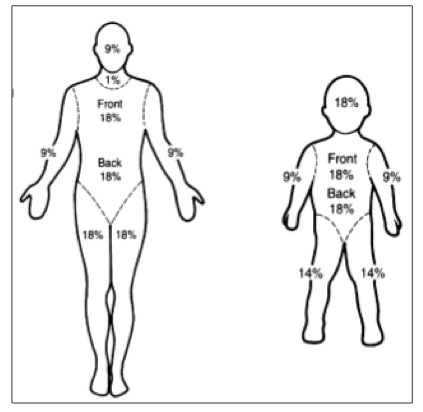
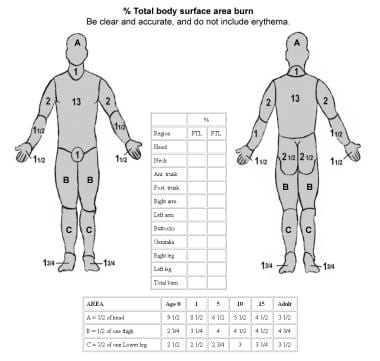

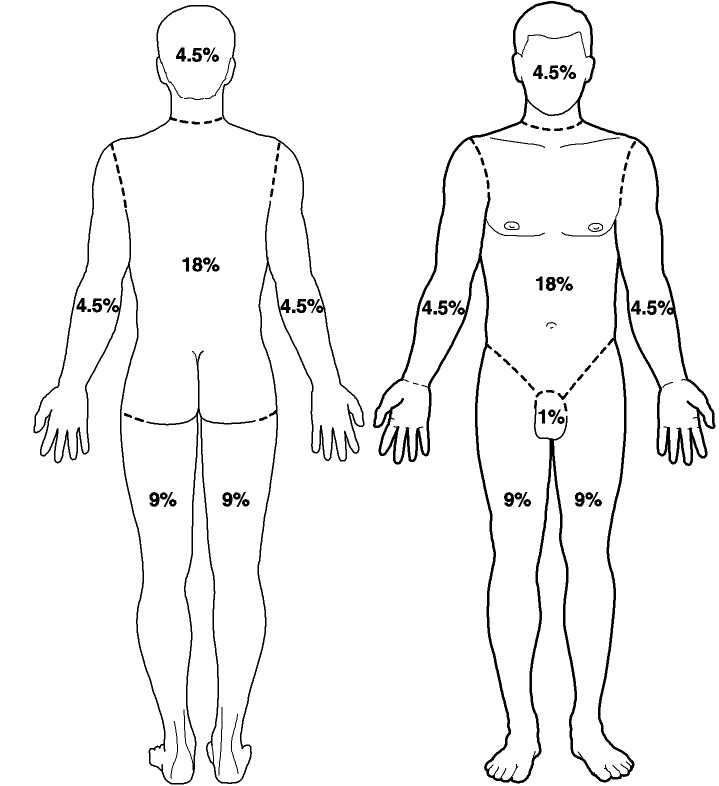


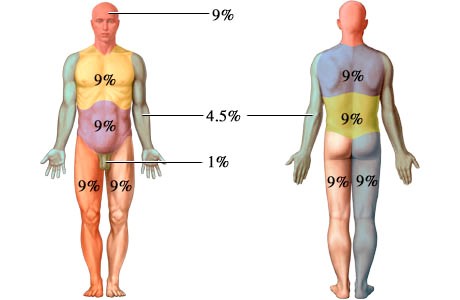



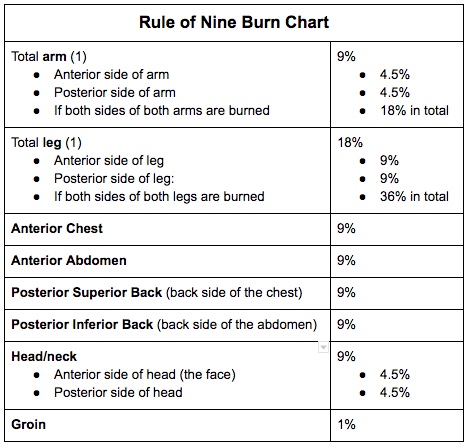



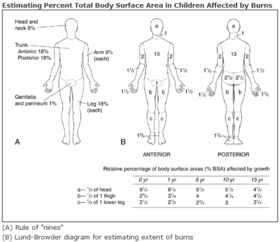



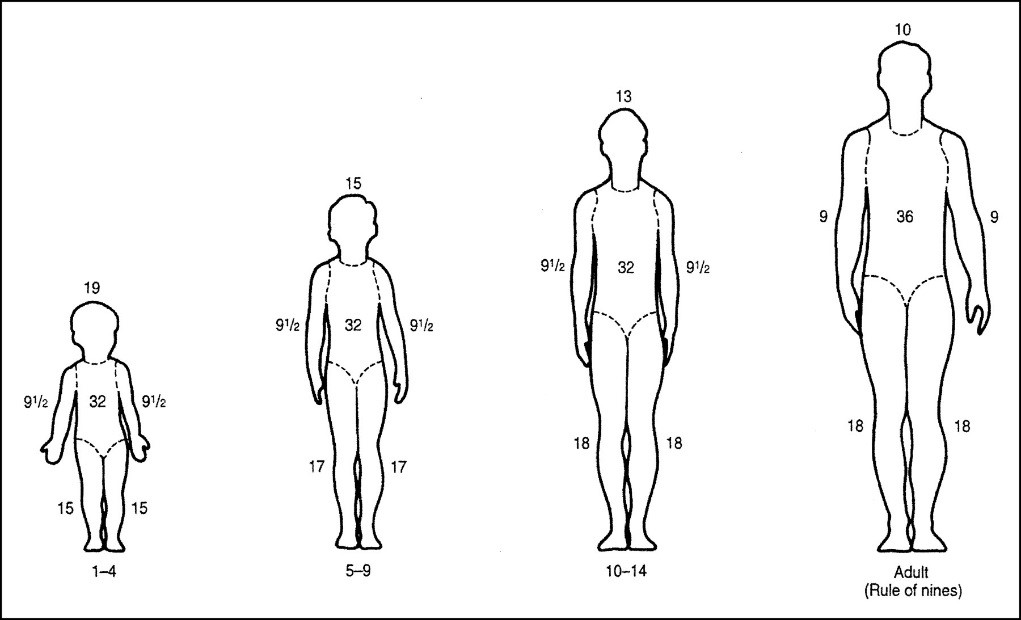
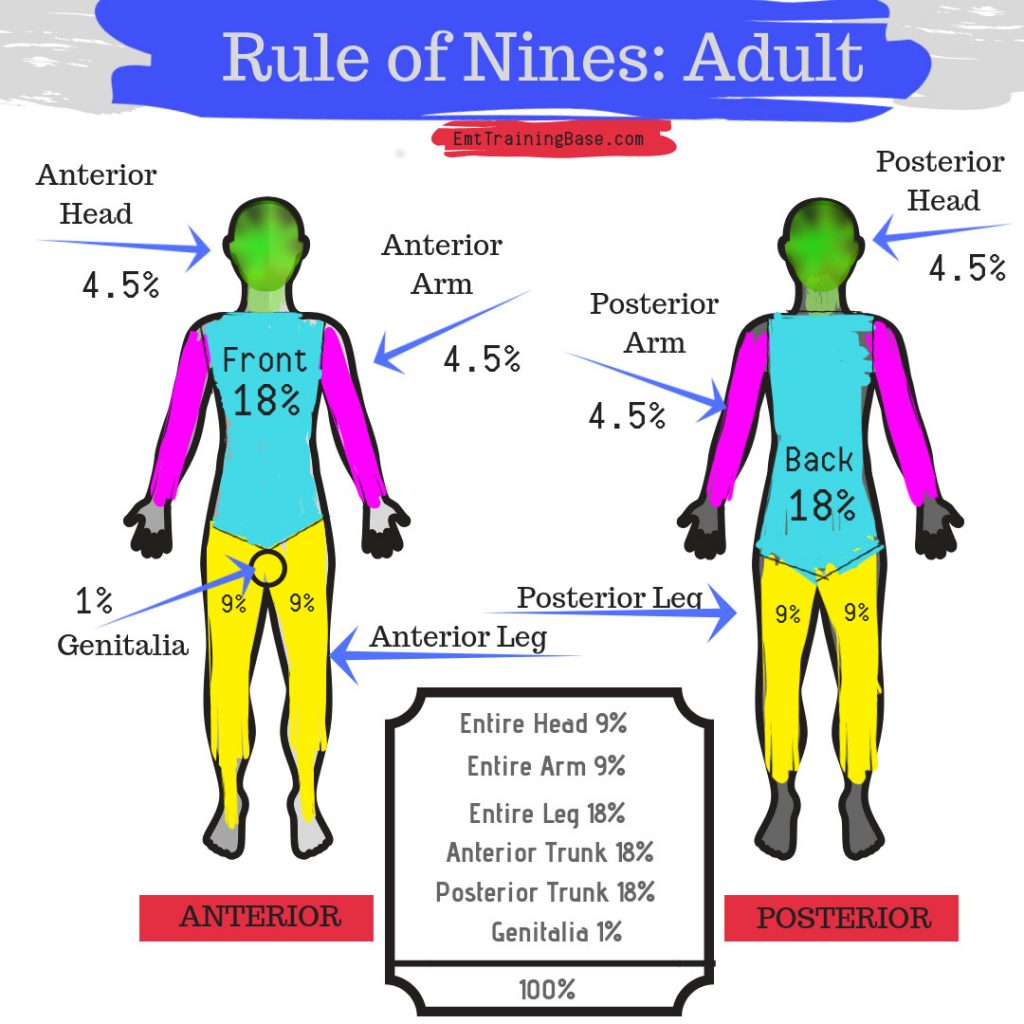


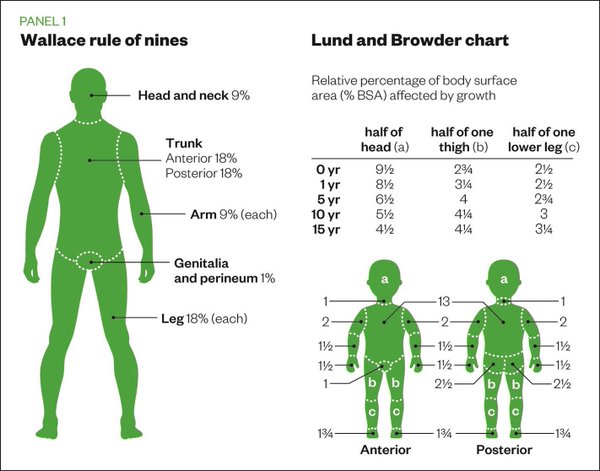







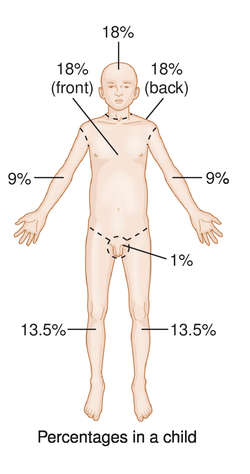

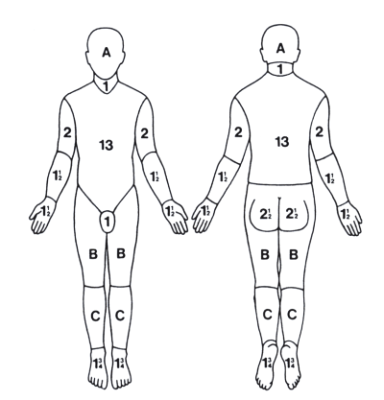



.jpg)

